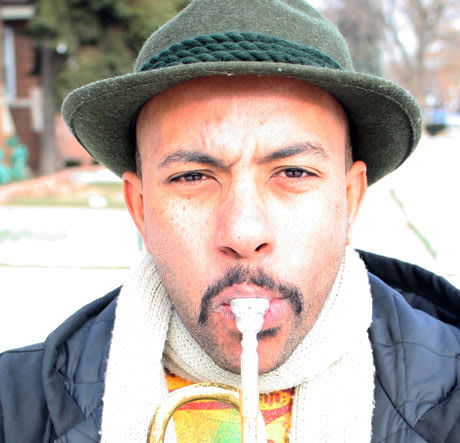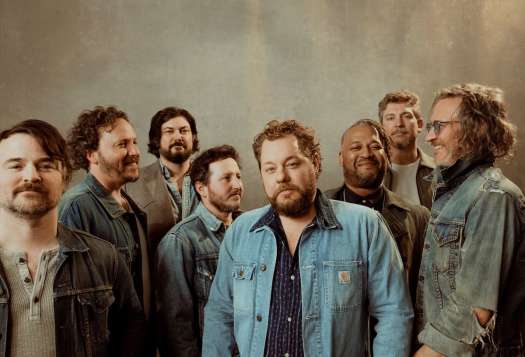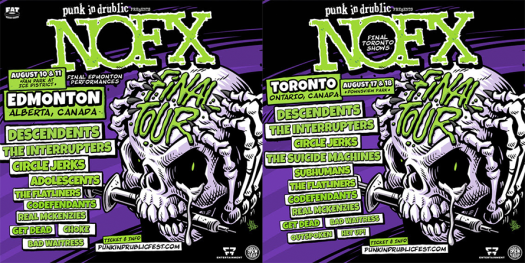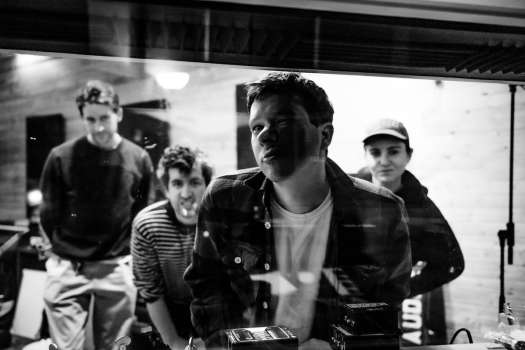Ben Lamar has two records out right now - and they come from very different places. His Juba Dance project, which mixes hip-hop, soul, jazz, electro and Brazilian rhythms, made a huge splash last year and has currently been remixed for a digital only release on the Audio 8 label. He's also a part time member of A Filial, whose $1.99 is surely one of the greatest hip-hop records ever to come out of Brazil. Ironically, A Filial's album is being promoted through world music channels rather than hip-hop, which may or may not improve the group's chances of touring in North America. Lamar is a musician with a wide range of creative expression - perfect for the Red Bull Music Academy, with whom he's worked with a few times. Exclaim! had a long, freewheeling conversation with Lamar over the phone about the roots and branches of all kinds of music, and different states of community.
So you divide your time between Brazil and Chicago?
Yeah, I've been here [Chicago] since last October. I was in Brazil for two years, and then I was part of the Red Bull Music Academy in Canada last year. After that I took a train over to Chicago and I've been here ever since. It's been a year. But I'm still living in Rio.
In your mind?
[Laughs] In my mind and in my apartment, you know because I've kind of got trapped in Chicago. The other half of my life is still in Rio but I need to find the time and money to go back.
What's your musical background like in Chicago, do you play live much?
I play live but I never get the chance to do my own shows with Juba Dance. But I play live every week. I play with a big band with the AACM [Association for the Advancement of Creative Musicians, venerable musician's organization in Chicago] called the Great Black Music Ensemble. I've been knowing these guys for a while, guys from the organization. Every first Sunday of the month we play at the Velvet Lounge [owned by avant jazz sax legend Fred Anderson]. It's like a collaborative free jazz big band. I play with different samba groups, you know, pick-up gigs, to keep up the chops musical wise.
What do you play with the AACM?
I would be in the trumpet section. Crazy trumpet section! Basically live, I'm a trumpet player, it's my first instrument.
Was there a point in which the profile of the organization dipped or has it always been a strong presence?
Well, I'm reading a book by George Lewis, the trombone player, called Power Stronger Than Itself, it's a history of experimental music basically in America and the AACM as well. It's a great book; I'm learning about the older generations of the AACM. It's a different energy now. I'm not really a part of the AACM I'm just in the band, I didn't get indoctrinated or whatever. You have to have someone bring you in , you pay dues. It's very beautiful how these guys developed it. Muhal Richard Abrams, Jody Christian, the Art Ensemble of Chicago, that whole generation. It's not the same vibe, but I can't really speak about it since I'm not part of the organization. I wouldn't mind being a part of the AACM and try to put my style of music within it, but I don't know if that would be accepted now.
Do you think Chicago's is receptive to music that skirts different types of genres?
Chicago's a very segregated city. That's the roots of Chicago - segregation. I think it's the culture of the city. It's very cliquish. That starts from the high politicians all the way to the shorties on the street. The city is very rich in culture, but it can be very segregated. You've got the south side musicians - the south side is predominantly black, the north side is different, white. The west side is smaller than the south side, but it's black, Latino. The only thing that forced me to get into a different scene was having a friend who played salsa saying "Hey man, come in this band." You have to naturally get into these scenes, because it's separate, salsa musicians don't know the rock musicians. Thrill Jockey has all that interesting stuff on there but... I don't know any of those cats. The only reason I played with Jeff Parker (Tortoise) is cause he played with the AACM big band. I don't think they're that receptive. I could get really deep into it and start crying, you know, but... the sun is shining today.
What you do in Juba Dance must appeal to Red Bull, though? You've done more than one tour of duty with them.
That's been the first group of people music wise that I've felt comfortable around. The only reason I knew about that is when I lived in Rio I met friends from London, they really liked my music and told me to send it [to Red Bull]. So at the last minute I sent it off. Being there it was just so comfortable, there was such a wide range of music and talent and skills and tastes being in the same room it was great. I've been in so many different situations, classical, jazz, Latin music whatever... here's what I think, I think the energy of all these past musicians that we love, it's left the instrumentalists and it's gone to music lovers who program beats and DJ. Their energy, their genius has moved on. I have a music education degree, and man, the energy is so stale, the creativity is gone. I'll use the example of jazz, those cats were youth, they were making all these moves, the music wasn't considered real, valid, but their energy and freshness it made the music grow. And I think that's what's happening in electronic music. At Red Bull, just being around some of those guys, it was the greatest energy I've ever felt.
How did Juba Dance come together?
It basically it was just me, Polyphonic the Verbose, Serengeti and a couple more people -it was a truly independent effort. Juba Dance came after my first trip to Brazil, I realized I had all these ideas, I thought I'd put it all in one project, and I combined with Will (Polyphonic) because I liked his sound. It got a lot of good reviews.
And the A Filial album out now, in terms of the energy involved in creating an explicit hip-hop project, how was that different than the Juba Dance project?
I tried to switch my mentality with A Filial. I tried to think, "Ben, when you're in Rio, you're Brazilian". I really wanted to focus on Brazilian rhythms, all of us really, it was a joint effort. We worked together, me and Edu [Lopes, leader of A Filial] lived together. Ever since I've been to Brazil we've been roommates. We would compose at home and bring in [Rodrigo] Pacato for the Brazilian rhythms and ask him, "How can this composition compliment the rhythms?" and vice versa. We wanted to take hardcore to Brazil, 'cause hip-hop is all over the world. We didn't have to worry about that, we wanted to focus on Brazil first with the rhythms and the different topics. We wanted to bring North Eastern Brazilian rhythms into a modern context. For example, we have a song called "Baiao One Two"; baiao is a north eastern rhythm used in forro, and the accents in the rhythm are the same accents as dancehall - it's just different syncopations. That's musically nerdy stuff to think about but for people dancing, they can kind of relate to it because it's similar to dancehall.
That comes across. I think it would go down well with the Red Bull crowd: you get a good DJ and who knows how to find the implicit links between these rhythms? And they can spin Elephant Man next to "Baiao One Two." There's a twinge of Tropicalia on the album too.
I'm a big fan of those cats. Tom Ze, he's the guy who didn't get respect. You know the Tropicalia movement was a whole art movement with painters and stuff, but from a music side Tom Ze was a very important part and he didn't get his dues.
I think A Filial could do well if it made it to those indie rock fans who are into Os Mutantes these days. You wouldn't think of them as being hip-hop fans but at the same time, you see how the ingredients are put together and it kind of fits well.
Yeah I'm hoping that will be the case. I think that way as well. There are so many similarities. 'Cause when we do it, we think of the past masters. Not to copy but to extend. But nowadays you have critics who call anybody young out of Brazil "oh it's the new Tropicalia movement." I've read that at least 50 times, it's like a label now. A lot of hip-hop in Brazil is listened to very differently too. It's very dark, a lot of it comes from Sao Paolo, which is very different than Rio; when you say "hip-hop" in Brazil, they think super negativity. It's the same shit here in the States, but it's a little worse there 'cause they're poorer, so it's extra hardcore, it's scary. Hip-hop is just so negative. In the States, hip-hop is making so much money for corporations that the word's not as taboo as it used to be, but in Brazil it still is.
Is there a chance for A Filial to tour?
It's so hard for the cats in Brazil to get visas over here. I've been talking with the guys from the record label to at least bring two of the guys over here, at least Edu and the percussionist. Those guys have never left Brazil before, it's so expensive to travel, they've never even left their home state. But that's the plan, the only way to survive nowadays is to play live, no one's selling records.
So you divide your time between Brazil and Chicago?
Yeah, I've been here [Chicago] since last October. I was in Brazil for two years, and then I was part of the Red Bull Music Academy in Canada last year. After that I took a train over to Chicago and I've been here ever since. It's been a year. But I'm still living in Rio.
In your mind?
[Laughs] In my mind and in my apartment, you know because I've kind of got trapped in Chicago. The other half of my life is still in Rio but I need to find the time and money to go back.
What's your musical background like in Chicago, do you play live much?
I play live but I never get the chance to do my own shows with Juba Dance. But I play live every week. I play with a big band with the AACM [Association for the Advancement of Creative Musicians, venerable musician's organization in Chicago] called the Great Black Music Ensemble. I've been knowing these guys for a while, guys from the organization. Every first Sunday of the month we play at the Velvet Lounge [owned by avant jazz sax legend Fred Anderson]. It's like a collaborative free jazz big band. I play with different samba groups, you know, pick-up gigs, to keep up the chops musical wise.
What do you play with the AACM?
I would be in the trumpet section. Crazy trumpet section! Basically live, I'm a trumpet player, it's my first instrument.
Was there a point in which the profile of the organization dipped or has it always been a strong presence?
Well, I'm reading a book by George Lewis, the trombone player, called Power Stronger Than Itself, it's a history of experimental music basically in America and the AACM as well. It's a great book; I'm learning about the older generations of the AACM. It's a different energy now. I'm not really a part of the AACM I'm just in the band, I didn't get indoctrinated or whatever. You have to have someone bring you in , you pay dues. It's very beautiful how these guys developed it. Muhal Richard Abrams, Jody Christian, the Art Ensemble of Chicago, that whole generation. It's not the same vibe, but I can't really speak about it since I'm not part of the organization. I wouldn't mind being a part of the AACM and try to put my style of music within it, but I don't know if that would be accepted now.
Do you think Chicago's is receptive to music that skirts different types of genres?
Chicago's a very segregated city. That's the roots of Chicago - segregation. I think it's the culture of the city. It's very cliquish. That starts from the high politicians all the way to the shorties on the street. The city is very rich in culture, but it can be very segregated. You've got the south side musicians - the south side is predominantly black, the north side is different, white. The west side is smaller than the south side, but it's black, Latino. The only thing that forced me to get into a different scene was having a friend who played salsa saying "Hey man, come in this band." You have to naturally get into these scenes, because it's separate, salsa musicians don't know the rock musicians. Thrill Jockey has all that interesting stuff on there but... I don't know any of those cats. The only reason I played with Jeff Parker (Tortoise) is cause he played with the AACM big band. I don't think they're that receptive. I could get really deep into it and start crying, you know, but... the sun is shining today.
What you do in Juba Dance must appeal to Red Bull, though? You've done more than one tour of duty with them.
That's been the first group of people music wise that I've felt comfortable around. The only reason I knew about that is when I lived in Rio I met friends from London, they really liked my music and told me to send it [to Red Bull]. So at the last minute I sent it off. Being there it was just so comfortable, there was such a wide range of music and talent and skills and tastes being in the same room it was great. I've been in so many different situations, classical, jazz, Latin music whatever... here's what I think, I think the energy of all these past musicians that we love, it's left the instrumentalists and it's gone to music lovers who program beats and DJ. Their energy, their genius has moved on. I have a music education degree, and man, the energy is so stale, the creativity is gone. I'll use the example of jazz, those cats were youth, they were making all these moves, the music wasn't considered real, valid, but their energy and freshness it made the music grow. And I think that's what's happening in electronic music. At Red Bull, just being around some of those guys, it was the greatest energy I've ever felt.
How did Juba Dance come together?
It basically it was just me, Polyphonic the Verbose, Serengeti and a couple more people -it was a truly independent effort. Juba Dance came after my first trip to Brazil, I realized I had all these ideas, I thought I'd put it all in one project, and I combined with Will (Polyphonic) because I liked his sound. It got a lot of good reviews.
And the A Filial album out now, in terms of the energy involved in creating an explicit hip-hop project, how was that different than the Juba Dance project?
I tried to switch my mentality with A Filial. I tried to think, "Ben, when you're in Rio, you're Brazilian". I really wanted to focus on Brazilian rhythms, all of us really, it was a joint effort. We worked together, me and Edu [Lopes, leader of A Filial] lived together. Ever since I've been to Brazil we've been roommates. We would compose at home and bring in [Rodrigo] Pacato for the Brazilian rhythms and ask him, "How can this composition compliment the rhythms?" and vice versa. We wanted to take hardcore to Brazil, 'cause hip-hop is all over the world. We didn't have to worry about that, we wanted to focus on Brazil first with the rhythms and the different topics. We wanted to bring North Eastern Brazilian rhythms into a modern context. For example, we have a song called "Baiao One Two"; baiao is a north eastern rhythm used in forro, and the accents in the rhythm are the same accents as dancehall - it's just different syncopations. That's musically nerdy stuff to think about but for people dancing, they can kind of relate to it because it's similar to dancehall.
That comes across. I think it would go down well with the Red Bull crowd: you get a good DJ and who knows how to find the implicit links between these rhythms? And they can spin Elephant Man next to "Baiao One Two." There's a twinge of Tropicalia on the album too.
I'm a big fan of those cats. Tom Ze, he's the guy who didn't get respect. You know the Tropicalia movement was a whole art movement with painters and stuff, but from a music side Tom Ze was a very important part and he didn't get his dues.
I think A Filial could do well if it made it to those indie rock fans who are into Os Mutantes these days. You wouldn't think of them as being hip-hop fans but at the same time, you see how the ingredients are put together and it kind of fits well.
Yeah I'm hoping that will be the case. I think that way as well. There are so many similarities. 'Cause when we do it, we think of the past masters. Not to copy but to extend. But nowadays you have critics who call anybody young out of Brazil "oh it's the new Tropicalia movement." I've read that at least 50 times, it's like a label now. A lot of hip-hop in Brazil is listened to very differently too. It's very dark, a lot of it comes from Sao Paolo, which is very different than Rio; when you say "hip-hop" in Brazil, they think super negativity. It's the same shit here in the States, but it's a little worse there 'cause they're poorer, so it's extra hardcore, it's scary. Hip-hop is just so negative. In the States, hip-hop is making so much money for corporations that the word's not as taboo as it used to be, but in Brazil it still is.
Is there a chance for A Filial to tour?
It's so hard for the cats in Brazil to get visas over here. I've been talking with the guys from the record label to at least bring two of the guys over here, at least Edu and the percussionist. Those guys have never left Brazil before, it's so expensive to travel, they've never even left their home state. But that's the plan, the only way to survive nowadays is to play live, no one's selling records.




